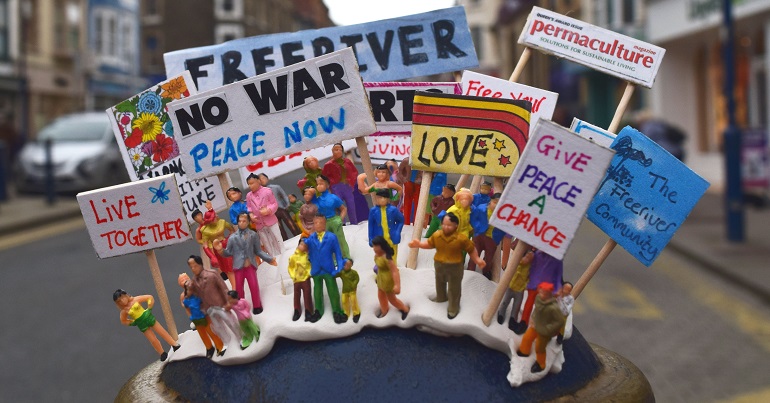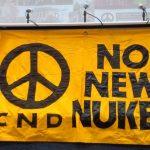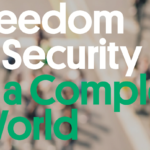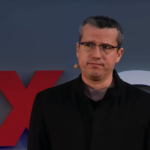The world cannot afford more militarism and exploitation

Editor’s note – this is abridged version of an article that was first published in November 2021 – prior to the 2022 Russian invasion of Ukraine
There are many things to fear about the unstable international landscape, with America in retreat and China and Russia increasingly assertive. But losing a stable, rules-based, democratic world is not among them. A sober examination of the post-war period reveals a striking truth: there was never a serious effort to create one.
Many see the geopolitical future as uniformly bleak. An economically and militarily resurgent China has taken a disturbingly Han nationalist path, repressing its Uyghur population with genocidal force and destroying Hong Kong’s “one country, two systems” model, breaking past promises. Vladimir Putin’s Russia still holds a massive nuclear arsenal, while presiding over a hollowed-out economy largely dependent on fossil fuels. Meanwhile, American hegemony is crumbling: economically, militarily, and in terms of will. Washington once strode the world proclaiming itself a force for democracy and peace. Particularly after the Taliban’s return in Afghanistan, it is plain that this will no longer be the case.
But this shift need not be regarded as an inevitable descent into international anarchy. There is a story that the United States – a nation founded on settler colonialism and slavery that remains the only power to have used nuclear weapons – still tells itself and the world. That since the end of the Second World War, the US has kept trying to do good in the world, defending democracy and rights even in the midst of the Cold War.
To some degree, this may hold true in Europe where states were immediately aligned on “our side” in the struggle against Soviet domination. Elsewhere, however, it is diametrically opposed to the truth. The idea that the West has historically acted as a champion of democracy in the Global South is a lazy assumption that is repeated unchallenged far too often.
Hot fronts of the Cold War
Today’s world is scarred by the long-term backing of repressive and corrupt regimes by the United States, the United Kingdom, France, and other European states. Carried out in the interests of giant multinationals, moral and practical support was provided for indefensible wars and human rights abuses. From Thailand, where the monarchy was built up on decades of Western support linked to the Vietnam War, to the desperate chaos of Libya and Iraq, where Colonel Gaddafi and Saddam Hussein were “our men” until they were not, the damaging repercussions of Western involvement are many.
The Soviet Union was also responsible for dreadful atrocities throughout the Cold War. The Chinese annexation of Tibet in 1950 was pure imperialism, setting the model for what is happening today in the rest of non-Han China, and Hong Kong. The difference is that the United States claims that it stood for democracy and the rule of law. In fact, what happened was that perfectly reasonable ambitions of newly independent nations were identified as “communism”, to be repressed in the interests of US-linked corporations.
US and UK policy has not changed in recent years. The dreadful human rights record of “friend and ally” Saudi Arabia has not prevented massive arms sales, though democratic pressure has seen some of the flow cut off. The US backs the regime of Abdel Fattah al-Sisi in Egypt despite the repression of independent media and civil society, as well as Philippine President Rodrigo Duterte’s “war on drugs” that has involved thousands of extra-judicial killings. And in North America, US gun manufacturers pump vast quantities of high-powered weapons into Mexican drug wars.
The fact that much of the world has not succeeded in establishing stable democratic governance and the rule of law is hardly surprising. The hegemonic world power acted against such an outcome, as did the second military power, the Soviet Union. Today China is increasingly playing the same role.
Change comes from within
But withdrawal from the world is now a matter of consensus across both sides of US politics. President Biden, as demonstrated in Afghanistan, is implementing Donald Trump’s “America First” policy. The situation in Afghanistan remains enormously dangerous: the country risks both internal conflict and becoming the site of a proxy war. The case needs to be made that international support for the rule of law and basic human rights – however antithetical to the Taliban’s ideology and record – is in everyone’s interests. Stability and security could produce benefits for all, and eventually allow the nation to develop functional institutions and governance. For institutions to truly develop, for a functional polity, and hopefully democracy to arise, internal political forces have to be allowed to counter-balance and develop mechanisms to deal with each other, and to achieve some form of harmony without an overweening outside force. The world should, with initially modest goals, work towards such a direction in Afghanistan – building on the education of girls and supporting environmental goals that will help protect agriculture.
This slow, internally worked-through development is what happened in most of the currently successful states in the world. Finland is now seen as one of the world’s most stable and best-governed states, but the nation’s early 20th-century history was tragic. A visit to the Finnish Labour Museum in its second city, Tampere, tells of civil war between Whites and Reds that saw massacres of political, economic, and social leaders, of unarmed civilians, and of surrendered fighters. Yet this relatively small country went on to become a much-admired national model.
While the Finnish people did that internally, largely on their own, even in the face of invasion, the development of international law – norms of behaviour for states that want to be respected and admired – over the past century makes it easier for other states to follow their path. Respect for the international system has demonstrable benefits for all nations that practice it and brings the broader, crucial advantage of a more stable world for all.
A world built from the bottom up
An agreement unlikely to be familiar to any but the most dedicated international relations aficionados, the Kellogg-Briand Pact of 1928 outlawed war. The agreement obviously did not have the desired effect, and it is most often referred to by those wishing to mock peace-making efforts. However, law professors Oona A. Hathaway and Scott J. Shapiro argue that the accord set out the foundations of an international legal order that prevented states from – at least explicitly – going to war because they wanted a neighbour’s island, or some of its resources.
Cross-border conflicts between internationally recognised states have declined precipitously since then. The Russian annexation of Crimea in 2014 was a rare exception. Even then, President Putin felt the need to prepare a smokescreen of pro-Russian demonstrations and a pro-Russian puppet regime, rather than just march in. Instead of conflicts, the pact paved the way for disagreements resulting more often in economic sanctions than the drawing of sabres. Economic sanctions are of course extraordinarily blunt instruments, directed at entire peoples when it is usually unelected regimes that are the offenders. Foreign policy resulting in starving children and collapsed economies is a powerful counter-argument.
Yet civil society has developed, campaigned for, and won growing implementation of an alternative approach. Known as Magnitsky-style sanctions, these measures target the individuals responsible for decisions rather than whole societies. Indeed, it is in civil society that the bulk of an increasingly complete framework of international law has been developed and put in place, if not always as fully as might be hoped. These sanctions are the latest in a long line of advances in declarations of international rights and responsibilities, that runs from the Universal Declaration of Human Rights up to, among others, conventions against chemical weapons, civil society-led work on the international offence of ecocide, and a global ban on nuclear weapons backed by most of the world’s states.
How then can we implement this framework in the 21st century? For civil society lacks the instruments to act. Meanwhile, nation-states and international bodies either stand aside or stand in the way. Any seriously well-intentioned international geopolitical effort would start with the example of the Nordic countries.
Using power and influence for good
Military force or economic power is not what makes a country truly respected in the world. A nation can be feared as a military force or counted as an economic heavyweight but still not rank as a “good global citizen”. The Good Country Index takes a data-based approach to examine the external impact of each country on the rest of the world – starting from the assumption that all have a wider responsibility to all of Earth’s people as well as the planet itself that we depend on.
While the details of the calculations are debatable, broadly the Nordic countries come out on top. The Nordic countries are in effect “steward states”, a concept developed by Emilie Hafner-Burton. In Making Human Rights A Reality, the legal professor sets out how the past few decades of international civil society and government effort has developed a comprehensive normative set of human rights rules, but fails to deliver them. Hafner-Burton’s vision of progress does not mean great sweeping actions but rather quiet patient work, diplomatic endeavours, the funding of civil society actors, and the use of international disapproval. It means taking human rights seriously, to be protected in the case of “friends and allies” as well as rivals, without fear or favour.
Being a steward state means looking at what works in encouraging human rights and the rule of law and democracy. It also implies acknowledging that “first, do no harm” is a principle that should extend far beyond medicine and deep into international affairs. It means acting hard against corrupt actors in the Global North – progress, if inadequate, has been made in American, British, and European law in this area – and reining in neocolonialist multinationals: work towards a global minimum tax rate shows the way here.
In an unstable status quo, working towards a world that looks radically different to today’s is not only in the interests of the small players who already stand out as good global citizens but also of the big powers. The EU, UK, and US have nothing to gain from further arms races and proxy wars. Feeding the military-industrial complex – powerful as it is – only means inadequate resources to meet the real challenges of today. Dealing arms to states such as Saudi Arabia means eventually handing them to the hostile forces that will take over when such regimes fall, as Afghanistan illustrates.
Security is the desire of the Chinese people, the Russian people, the American people, as much as any other. A green diplomatic future seeks to build on that, to take the international legal framework already in place and deliver the rights it promises for all. The world cannot afford militarism and exploitation if it is to both put the resources, energy, and attention needed into the climate and ecological crises, and see off threats of economic and social collapse. Previous failures were the functions of bad choices. We can – and must – make better ones.
This is an abridged version of an article – To Repair its Geopolitics, the West Needs a New Model of Statehood – first published in the Green European Journal. The article was published as part of the winter 2021 issue of the Green European Journal – Moving Targets: Geopolitics in a Warming World. You can order a print copy of the issue here.
PS. We hope you enjoyed this article. Bright Green has got big plans for the future to publish many more articles like this. You can help make that happen. Please donate to Bright Green now.




Leave a Reply